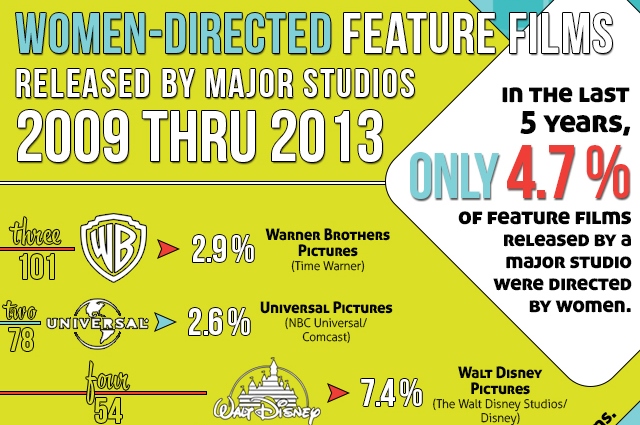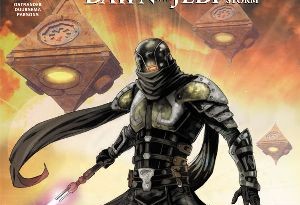How Indie Directors Have Changed Hollywood
 At io9, Annalee Newitz looks at how indie directors have changed Hollywood. With indie alums like James Gunn (Guardians of the Galaxy), Josh Trank (Star Wars untitled standalone film), and Rian Johnson (Episode VIII, reportedly) making the leap to the big leagues, this trend likely will continue. Newitz notes that this infusion of fresh blood is still dominated by white men.
At io9, Annalee Newitz looks at how indie directors have changed Hollywood. With indie alums like James Gunn (Guardians of the Galaxy), Josh Trank (Star Wars untitled standalone film), and Rian Johnson (Episode VIII, reportedly) making the leap to the big leagues, this trend likely will continue. Newitz notes that this infusion of fresh blood is still dominated by white men.
If outsider perspectives made Lord of the Rings and Dark Knight into fantastic franchises, imagine what would happen if you brought in the perspectives of women and people of color. It’s possible they’d give us the same old bland pablum the white guys have been delivering for decades. But maybe they’d give us a fantasy epic that actually feels epic — or a superhero whose emotions have more than one dimension. Or something so blisteringly awesome we can’t even imagine it.
Women and Film posted a sobering infographic on the number of female directors working for the major studios in the past 5 years: 2.9% for Warner Brothers, 2.6% for Universal, 7.4% for Disney, 5.2% for Sony, 6.6% for 20th Century Fox and 4.8% for Paramount. In response a Twitter hashtag campaign #HireTheseWomen has started. IndieWire’s /Bent blog explains the uphill battle women face getting their foot in the door, unlike untested directors like say, Bob Orci (Star Trek 3).
But #hirethesewomen is more than just armchair activism. Women directors might hope to be represented to the studios that might hire them by their agents, but it’s not always that simple. Firstly, it’s a lot harder for women to even find an agent (browse the client list of any agency you like if you don’t believe us) and even when they do, agents are predisposed to present their safest bets to potential hirers. In an industry where women are habitually seen as a risk simply because of their gender, it’s clear what happens next.
But in the age of Twitter, drawing attention to the women directors who are out there, qualified and available to be hired really can help increase their visibility. There are large numbers of industry insiders on Twitter, and even more who pay attention to what’s being said. Since Miriam Bale began the hashtag, it has taken off. Among those getting involved is Lexi Alexander, the aforementioned Oscar-nominated director, who has done a fine job of keeping the conversation going, posting various lists of directors in numerous genres.
All in all, it’s a fine and forward-looking response to what began as a highly depressing set of statistics. So get involved! And who knows, maybe the director of Star Wars Episode 23 won’t have a Y chromosome.
One female director’s name – Michelle MacLaren – has been mentioned as a possibility for Star Wars. If you take Katie Lucas out of the equation, Lucasfilm has had a pretty dismal record in the past five years of hiring female storytellers in key positions like directors, artists, television writers, and book authors. The likes of Gareth Edwards and Josh Trank suggest the Kathleen Kennedy-helmed Lucasfilm is brave enough to tell all sorts of Star Wars tales. In a galaxy of infinite possibilities, imagine all the different directions Star Wars might go with a more diverse roster of directors and writers.
I’m voting for a Carrie Fisher penned Star Wars movie. Who’s with me?
{Star Wars director discussion found on HitFix, Film School Rejects)
Tricia Barr writes about Star Wars for Random House’s science fiction and fantasy blog Suvudu.com and Star Wars Insider magazine and is a contributor for Her Universe’s Year of the Fangirl. Her FANgirl opinions can be heard on the podcasts Assembly of Geeks and RebelForce Radio Presents Fangirls Going Rogue.
Tricia Barr’s novel, Wynde, won the 2014 Independent Publisher Book Award Gold Medal for Best Science Fiction/Fantasy/Horror Ebook.
For updates on all things FANgirl follow @FANgirlcantina on Twitter or like FANgirl Zone on Facebook. At times she tries the Tumblr.
- Hyperspace Theories: SKELETON CREW Ahoy! - December 29, 2024
- Hyperspace Theories: WICKED Part I Rises to the Moment - December 6, 2024
- Columbia’s Vader™ Collection Launches Dec 5 - November 27, 2024












Pingback:Links: Redefining Disability, Feminism, Diversity and Science Fiction | Natacha Guyot